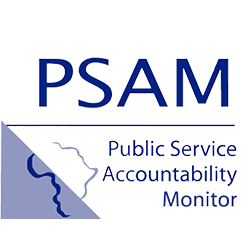
The rights of many learners to education and human dignity is being violated because of the lack of sanitation facilities, writes Siyabulela Fobosi.
While South Africa is seen as having some of the highest rates of universal access to primary education, with Gross enrolment rates in primary schools having increased from 88,1% in 2002 to 94,2% in 2015 (StatsSA, 2016), public schools continue to face infrastructure challenges.
For example, in January 2018 the Department of Basic Education in its National Education Infrastructure Management System (NEIMS) reported that out of the 5 400 schools in the Eastern Cape, 1 945 schools used pit latrines, 154 schools had no electricity.
The death of Lumko Mkhethwa is a case in point of poor infrastructures in some schools. The 5-year-old fell into a pit latrine at Luna Primary School in Bizana, in the Eastern Cape. The use of pit latrines in schools has negative implications on the healthy learning environment for the learners. Poor sanitation, and lack of access to basic services also affect the health of learners. The rights of many learners to education and human dignity is being violated because of the lack of sanitation facilities.
This condition demonstrates that access to quality of education remains very poor mostly in the historically deprived areas of the Eastern Cape; some of the schools do not even meet the basic learning infrastructure requirements such as access to laboratories, libraries, internet connections and proper toilets.
The existence of pit latrines in schools constitutes an affront to equitable access to education and resources. As such, the Public Service Accountability Monitor (PSAM) makes the following recommendations to the Department of Basic Education:
- In accordance with the National Norms and Standards for School Infrastructure, all schools should meet the basic learning infrastructure requirements such as access to electricity, laboratories, libraries and proper toilets in order to ensure the right of learners to education.
- Accordingly, the Department of Basic Education should commit to upgrading each school’s infrastructure to meet optimum standards.
- The Department should consider learner safety when planning infrastructure, so as to avoid cases of the death of learners in pit latrines.
- There should be more focus on promoting access to healthy learning environment for all learners.
- It is high time that the Department of Basic Education (assisted by Treasury) address challenges in school infrastructure provisioning.
- Siyabulela Fobosi is an Education Researcher at the Public Service Accountability Monitor (PSAM), School of Journalism & Media Studies, Rhodes University. Email S.Fobosi@ru.ac.za
Twitter: @PSAM_AFRICA
www.psam.org.za
